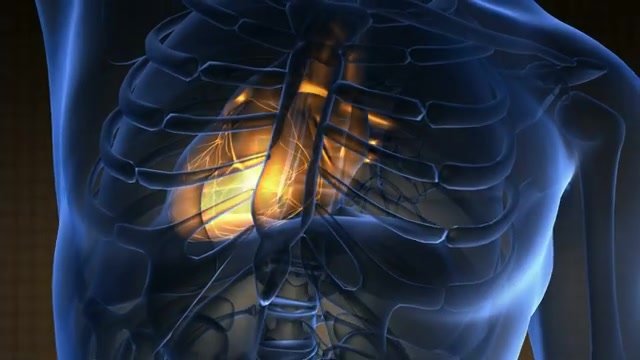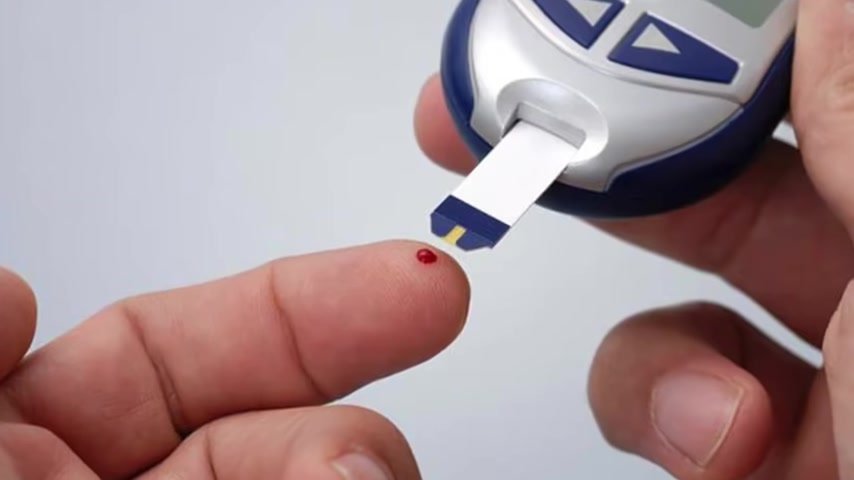Table of Contents
Uncover the vital role of potassium in your health. Learn about the symptoms of potassium deficiency and how a high-potassium diet can protect your kidneys and prevent strokes.
Potassium Has the Ability To Protect Your Kidneys
Today we’re gonna talk about potassium again .
I’m just really fascinated with this mineral .
You may not be very excited about it , but I think it’s really interesting .

I wanna talk about , the fact that potassium has the ability to protect your kidneys , heart , and arteries .
Now we’re told the opposite .
We’re told that , potassium might cause kidney damage , but that would only occur if you have chronic end stage kidney failure .
That’s rare .
What about in every other situation ?
Now there’s 1 study I wanna mention .
I put a link down below .
And yes , it was done in mice , but check this out .
They deprived mice of potassium for 2 to 6 weeks .
That’s it .
And they actually found kidney damage .

The kidneys were filling with fat , becoming calcified , atrophied , that means shrinks , necrotic , it was breaking down and basically it creates necrosis of the filtration unit , which is degeneration of the filter .
And that’s what the kidney is .
It’s a filter .
It filters your blood .
And here’s another study .
I’ll put the link down below and this is quite incredible .
Potassium Protecting against Stroke
It talks about potassium protecting against stroke .
It allows cerebral arteries , it’s arteries of your brain , to carry blood at high pressure without damage .
This is incredible because so many people were at risk for stroke , especially diabetics , especially people with blood sugar issues , and it’s such a simple fix .
You consume more potassium foods .
And we can’t forget blood pressure .

Potassium has ability to lower blood pressure and decrease the risk of kidney stones .
I mean , how many people are on blood pressure medication and they’re not told to increase their potassium ?
They’re not told to increase their vegetables .
They’re told to decrease their sodium .
Decreasing your sodium has like this much effect .
Increase your potassium has a much larger effect on blood pressure .
Potassium Deficiencies
Now let’s talk about potassium deficiencies and what causes them .
Number 1 , a low potassium diet .
Person’s not consuming enough vegetables .
Laxatives , diuretics , which people take to lower blood pressure when the actual cause is low potassium , but the diuretic depletes the potassium .
Cortisol .
Now in in the form of prednisone , which is a medication , which is an anti inflammatory , or just high levels of cortisol from the adrenals .

And this is the stress hormone that can deplete potassium .
And diabetes .
From several mechanisms .
From the standpoint of stored glucose as glycogen , in order to store , glycogen you need potassium .
So if you don’t have enough potassium , you’re not gonna be able to have enough glycogen , and then you’re gonna have blood sugar problems .
So you’re gonna have highs and lows from that alone .
When you have insulin resistance , you can’t absorb potassium that well .
Usually diabetics become diabetic because they’re eating too many refined carbohydrates .
Refined carbohydrates are a lot of carbohydrate in the refined state without potassium , like for example , table sugar .

Now cane sugar by the way , if you consume cane sugar as a whole food , it is loaded with potassium .
Molasses has a lot of potassium .
That’s the waste product from sugar , but the pure refined white sugar is completely void of potassium .
So when you consume it , you deplete yourself of potassium because 1 of the symptoms of a high pulse rate is low potassium .
| Category | Details |
|---|---|
| Role of Potassium | Essential for muscle function, nerve transmission, and maintaining fluid and electrolyte balance. |
| Symptoms of Potassium Deficiency | – Muscle cramps – Weakness – Fatigue – Constipation – Irregular heartbeats – Tingling or numbness – Nausea – Vomiting – Bloating – Abdominal pain |
| Benefits of High Potassium Diet | – Protects kidney function – Reduces risk of hypertension – Prevents strokes – Supports cardiovascular health – Enhances muscle function and recovery |
| Sources of Potassium | – Bananas – Avocados – Leafy greens – Beans – Nuts – Seeds – Potatoes – Fish |
| Impact on Kidney Health | Adequate potassium levels help maintain proper kidney function and prevent kidney-related health issues. |
| Potassium and Stroke Prevention | High potassium intake can reduce the risk of stroke by regulating blood pressure and supporting overall cardiovascular health. |
| Dr. Berg’s Recommendations | Monitor potassium levels, incorporate potassium-rich foods into your diet, consider supplements if necessary, consult with a healthcare provider for personalized advice. |
| Importance of Monitoring Levels | Regular check-ups with healthcare providers, monitoring for signs of deficiency or excess, maintaining a balanced diet for overall health. |
Then we have other refined carbs in the form of wheat .
When you take whole grain , you usually get some potassium .
But when you refine it , you deplete the potassium .
Not to mention the b vitamins and other nutrients .
The Symptoms of a Potassium Deficiency

The symptoms of potassium deficiency are not only high blood pressure , but fatigue and loss of stamina
You don’t have that endurance like you had at 1 time .
Leg cramps , constipation , and there’s many others .
But the bottom line is if you wanna protect your kidney , your arteries , and your heart , start consuming more vegetables .
I’m gonna recommend salads and other greens , but realize that we need 47 100 milligrams per day .
That’s a lot .
You would have to consume 7 to 10 cups of salad or vegetables each day .
key points:
In this topic, Dr. Berg discussed potassium and its benefits. Potassium has the ability to protect your kidneys, heart, and arteries. We’re told that potassium might cause kidney damage, BUT that would only occur if you have chronic end-stage kidney failure which is very rare.
There is a study about potassium protecting against stroke where it allows cerebral arteries (arteries of the brain) to carry blood at high pressure without damage. Potassium has the ability to lower blood pressure and decrease the kidney risk of stones.
Cause of Potassium Deficiencies
- Low Potassium Diet
- Laxatives
- Diuretics – people take to lower blood pressure where in fact it depletes the potassium.
- Cortisol – in the form of prednisone or high levels of cortisol from the adrenals or stress hormones.
- Diabetes (IR) – with insulin resistance, you can’t absorb potassium that well.
Symptoms of Potassium Deficiency
- High blood pressure
- Fatigue
- Loss of stamina
- Leg cramps
- Constipation
DATA:
https://www.ncbi.nlm.nih.gov/pmc/articles/PMC6224672
https://europepmc.org/article/med/3464706
https://www.medicalnewstoday.com/articles/302530
https://www.bmj.com/content/323/7311/497.full
FAQ:
Does potassium protect the kidneys?
Potassium helps maintain proper kidney function by balancing fluids and electrolytes in the body. However, both low and high potassium levels can adversely affect the kidneys. Maintaining adequate potassium levels through a balanced diet can support kidney health.
What are the symptoms of potassium deficiency?
Symptoms of potassium deficiency, also known as hypokalemia, include muscle cramps, weakness, fatigue, constipation, irregular heartbeats, tingling or numbness, nausea, vomiting, bloating, and abdominal pain. Severe deficiency can lead to paralysis and respiratory failure.
What are the benefits of eating potassium foods?
Eating potassium-rich foods provides numerous benefits, including improved muscle function, better nerve transmission, regulated fluid balance, reduced risk of hypertension, and enhanced cardiovascular health. Potassium also helps prevent muscle cramps and supports overall energy levels.
Does high potassium affect the kidneys?
High potassium levels (hyperkalemia) can affect the kidneys by impairing their ability to function properly. Hyperkalemia can lead to serious health issues such as cardiac arrhythmias and muscle weakness, which may require medical intervention.
What are the symptoms of potassium deficiency?
Symptoms of potassium deficiency include muscle cramps, weakness, fatigue, constipation, irregular heartbeats, tingling or numbness, nausea, vomiting, bloating, and abdominal pain. Severe deficiency can lead to more serious health issues such as paralysis and respiratory failure.
What is the most common cause of low potassium?
The most common cause of low potassium (hypokalemia) is excessive loss of potassium through urine or the digestive tract, often due to diuretic medications, chronic diarrhea, or vomiting. Other causes include poor dietary intake, excessive sweating, and certain medical conditions.
What are the complications of hypokalemia?
Complications of hypokalemia include muscle weakness and cramps, constipation, irregular heartbeats, fatigue, tingling or numbness, nausea, vomiting, paralysis, respiratory failure, and cardiac arrhythmias. Severe hypokalemia can be life-threatening and requires prompt medical attention.
What is hypokalemia in kidney disease?
Hypokalemia in kidney disease refers to low potassium levels in individuals with kidney disorders. Kidney disease can impair the kidneys’ ability to regulate potassium levels, leading to an increased risk of hypokalemia. Monitoring and managing potassium levels are crucial for kidney disease patients.
Symptoms of low potassium in females
Symptoms of low potassium in females include muscle cramps, weakness, fatigue, constipation, irregular heartbeats, tingling or numbness, and mood changes. Women may also be more prone to muscle spasms and cardiovascular issues due to hormonal fluctuations.
Potassium deficiency symptoms
Symptoms of potassium deficiency include muscle cramps, weakness, fatigue, constipation, irregular heartbeats, tingling or numbness, nausea, vomiting, and abdominal pain. Severe deficiency can lead to paralysis and respiratory failure.
What are the 10 signs of low potassium
- Muscle cramps
- Weakness
- Fatigue
- Constipation
- Irregular heartbeats
- Tingling or numbness
- Nausea
- Vomiting
- Bloating
- Abdominal pain
Is low potassium a sign of cancer?
Low potassium is not typically a direct sign of cancer, but it can occur in cancer patients due to factors like chemotherapy, poor nutrition, or hormonal imbalances. If you have concerns about potassium levels and cancer, consult with a healthcare provider for a thorough evaluation.
Can you die from low potassium?
Yes, severe low potassium levels can be life-threatening. It can lead to serious health issues such as heart arrhythmias, paralysis, respiratory failure, and cardiac arrest. Immediate medical attention is necessary if severe hypokalemia is suspected.
Potassium deficiency causes
Causes of potassium deficiency include excessive loss through urine or the digestive tract (due to diuretics, diarrhea, vomiting), poor dietary intake, excessive sweating, chronic kidney disease, certain medications, hormonal imbalances, and conditions like diabetes.
Potassium deficiency treatment
Treatment for potassium deficiency includes increasing dietary intake of potassium-rich foods, taking oral potassium supplements, and, in severe cases, administering intravenous potassium. Addressing the underlying cause, such as adjusting medications or treating chronic conditions, is also crucial.
How long does it take to recover from low potassium?
Recovery from low potassium depends on the severity of the deficiency and the treatment approach. With proper dietary changes and supplementation, mild hypokalemia can improve within a few days to weeks. Severe cases may take longer and require ongoing monitoring by a healthcare provider.




